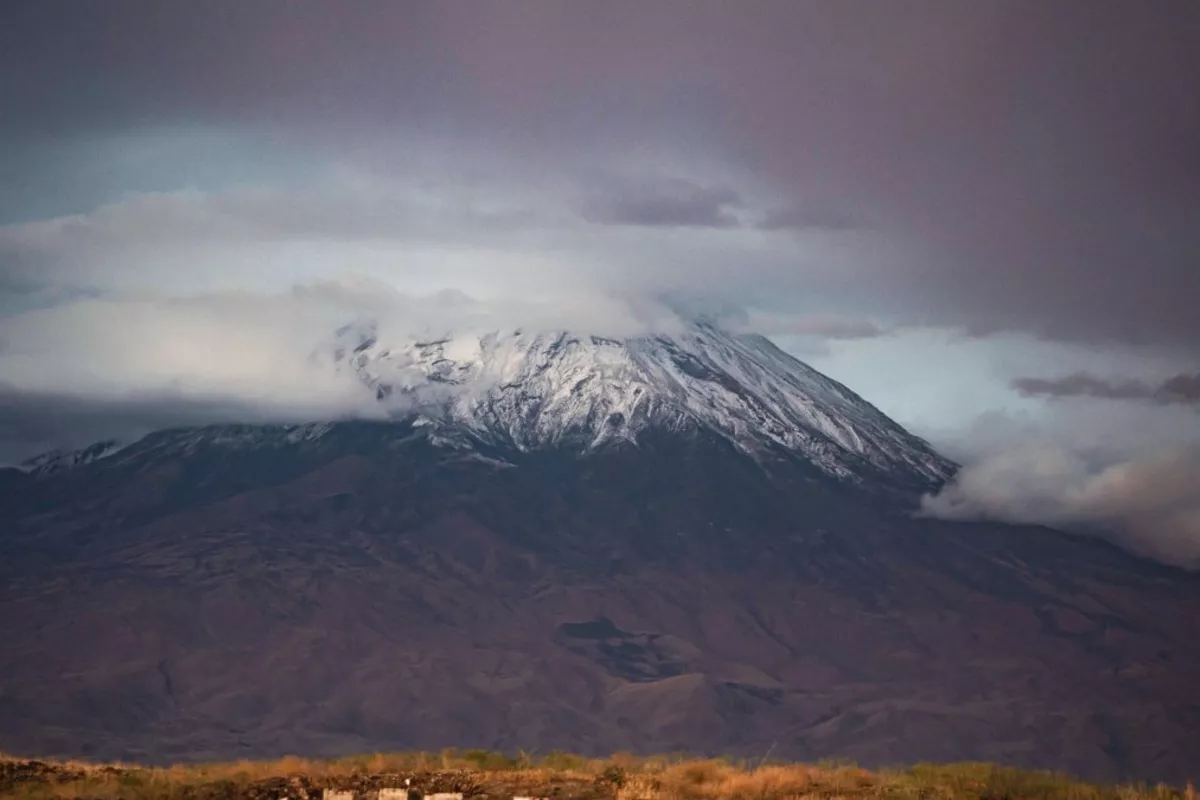
AA Photo
Armenia is removing the image of Mount Ağrı from its passport stamps, a move widely interpreted as a gesture of goodwill in efforts to normalize relations with Türkiye.
As of Nov. 1, 2025, stamps bearing the symbol of Mount Ağrı will no longer be used, according to local media reports on Sunday, The Caspian Post reports citing Turkish media.
Mount Ağrı is located in Türkiye, near its border with Armenia. Its symbol has long been used in Armenian nationalist rhetoric and had previously appeared on entry and exit stamps at border crossings.
In a post on social media platform X, Labor and Social Affairs Minister Arsen Torosyan said the updated stamps will contain solely border-crossing details and no additional images, in line with the practice followed by most countries.
Artur Ovannisyan, secretary general of the ruling party in parliament, said the change reflects Armenia’s commitment to building constructive ties with its neighbors.
“Our goal is to establish good and constructive relations with all our neighbors,” Ovannisyan said. “We must not send negative signals. This is why the decision was made to remove the Mount Ağrı figures on the border crossing seal in Turkish territory.”
The step follows broader calls by Prime Minister Nikol Pashinyan to tone down nationalist language in Armenia’s political framework, including its constitution. The current Constitution, adopted in 1990 before Armenia’s independence from the Soviet Union, refers to eastern Türkiye as “Western Armenia” and Karabakh, which belongs to Azerbaijan, as “Armenian territory.”
“All these statements are causing serious discomfort to our neighbors,” Pashinyan said earlier this year, warning that such rhetoric fuels distrust and instability. “There will be those who will call me a traitor again. However, if we want to build trust and stability in our region, we must stop provoking our neighbors.”
In 2023, Armenia’s historical ally, France, faced criticism after a government official shared a photo of Mount Ağrı in a social media post on Armenia, which many saw as echoing ultranationalist claims. Asked whether Paris supported such views, Foreign Ministry spokeswoman Anna-Claire Legendre said the mountain was a “symbolic scene” for Armenians because of its proximity to the border.
Armenia, independent since 1991, has long leaned on ultranationalist positions shaped by its global diaspora. But recent steps, including the passport change, highlight what analysts view as a pragmatic shift in policy.
Türkiye and Armenia have no diplomatic relations, and their shared border has been closed since the early 1990s. Both sides have engaged in cautious normalization talks in recent years, with Ankara welcoming signals from Yerevan that emphasize regional peace and cooperation.
Just last week, Turkish and Armenian delegations met on the border for the sixth round of normalization talks. The sides agreed to pursue normalization without preconditions and agreed to step up the process of opening border crossings. They also decided to boost cultural and academic cooperation, including scholarships for students and joint restoration of the historic Silk Road (Ani) Bridge. In addition, they agreed to facilitate work for new airlines to launch flights next summer, aiming to expand air travel and connectivity between the two countries.
The neighbors share a complex history. Armenia, for a long time, has accused Türkiye, or rather, the Ottoman Empire, of committing "genocide" against the Armenian population in the country during World War I. Türkiye has repeatedly denied the claims, although it has acknowledged a high number of deaths among Armenians due to isolated incidents and diseases.
Borders have remained closed since 1993 following Armenia’s illegal occupation of the Azerbaijani territory of Karabakh. Relations began to thaw after the 2020 Karabakh war, with both sides appointing special envoys to pursue normalization talks and negotiating the reopening of their land border. So far, limited agreements have allowed third-country citizens and diplomats to cross, but a full reopening remains elusive.
Share on social media